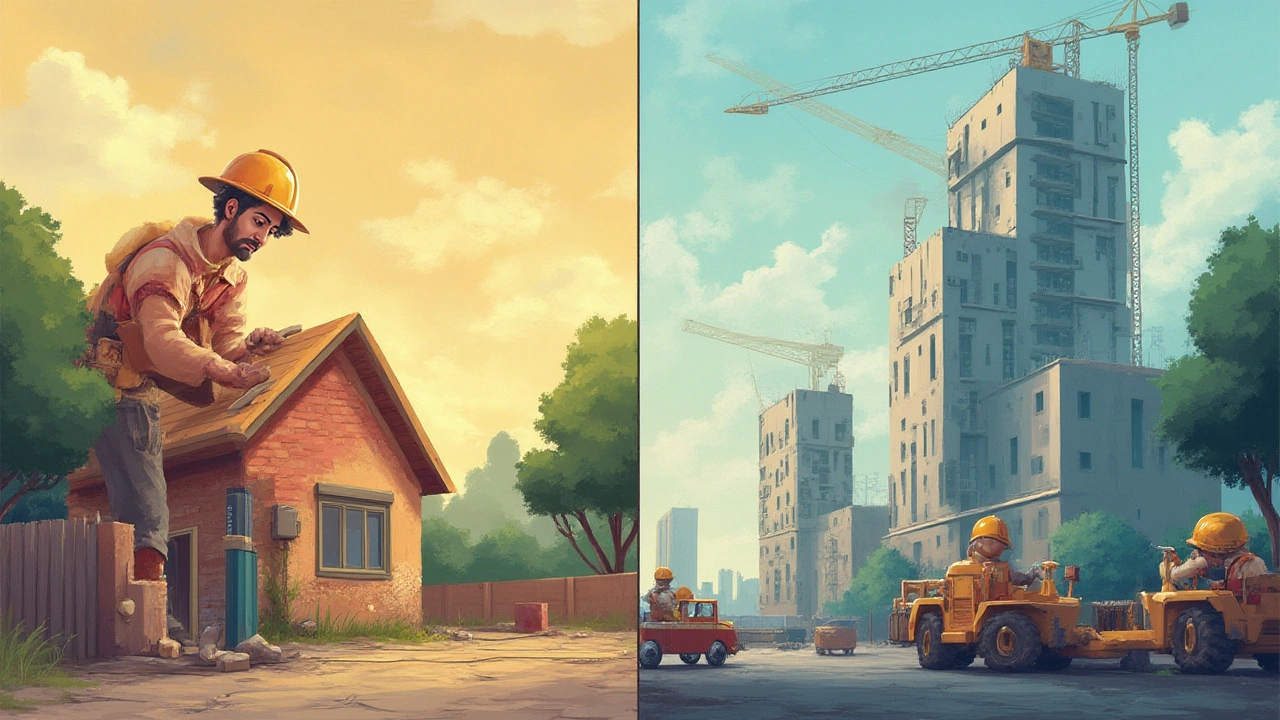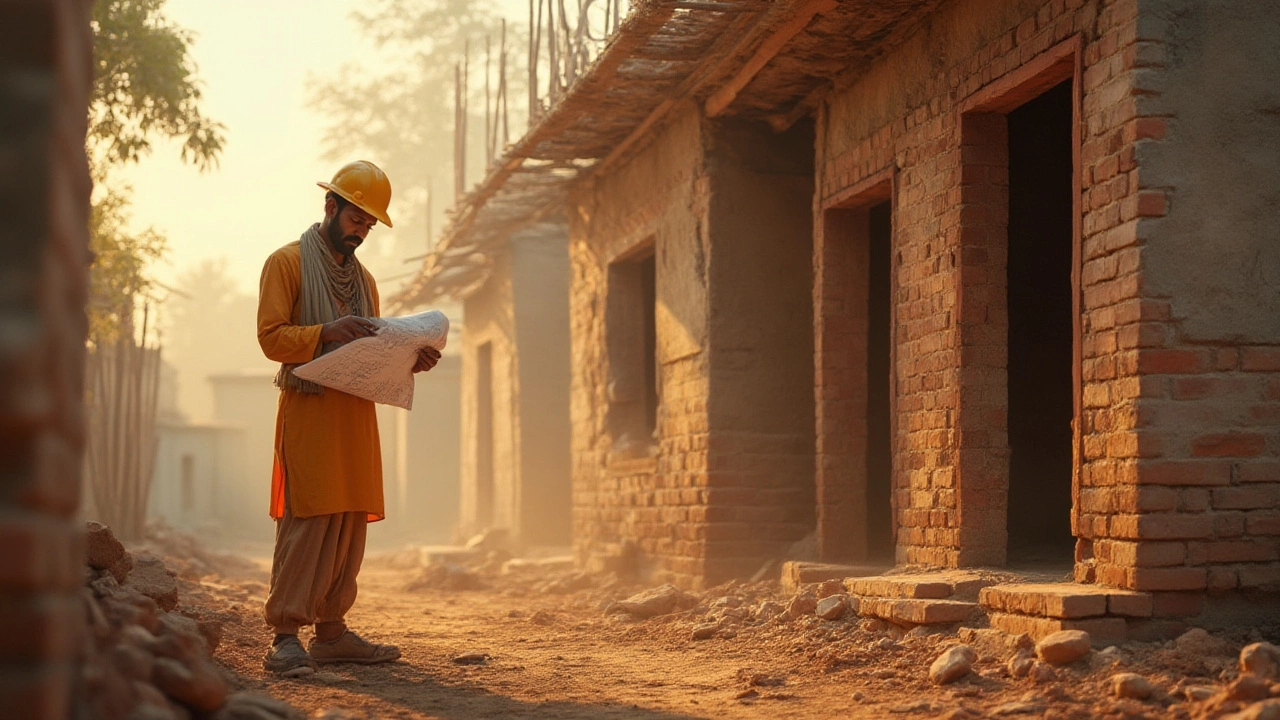If you’ve ever been knee-deep in a home project or tried to get your business premises sorted, you’ve probably run across these two job titles: builder and construction company. At first glance, it all sounds pretty similar – stacks of timber, work boots, and a never-ending supply of power tools. But in reality, these terms mean entirely different things. In a country like New Zealand, where the building industry contributes over $18 billion a year to the economy (making up about 6% of our total GDP), understanding the difference can save you time, money, and a lot of headaches.
What Does a Builder Do?
Let’s start with the basics. A builder is usually a qualified tradesperson who manages and works on the physical construction of a structure. In New Zealand, builders are often Licensed Building Practitioners (LBPs), especially if the work is ‘restricted building work,’ which means it affects structural integrity or weather tightness of a home. Builders can work solo, in teams, or with subcontractors for parts like electrical and plumbing.
Here’s what a builder typically takes on:
- Hands-on construction work: walls, floors, roofs, and fit-outs.
- On-site project management for smaller residential jobs.
- Reading and interpreting plans, measurements, and technical drawings.
- Calling in trusted sparkies (electricians) or plumbers if required.
- Handling materials and ensuring each part of the process meets local building codes.
- Direct communication with homeowners or business owners – think of them like your project’s quarterback, except they probably like their coffee in a Thermos.
Builders also offer a level of personalisation you won’t get from a large company. Many run their own small business, relying heavily on reputation and word of mouth. They usually take on renovations, extensions, new builds of family homes, decks, bathrooms – practical projects where you want to have a say in every last nail.
One misconception is that all builders do everything themselves. Actually, for anything that requires different expertise (like installing HVAC or rewiring), they’ll call on specialists. But a good builder will coordinate all the moving parts and be physically involved in making your plans a reality. According to the New Zealand Certified Builders Association, nearly 25,000 licensed builders make up our residential workforce, and over 70% of them work in small teams of five people or less. That personal touch is what makes dealing directly with a builder so unique – it’s not unusual to see the same faces on site from your first handshake to the final walkthrough.
If you want one room expanded, your kitchen modernised, or a new deck to soak up that classic Auckland sun, a skilled builder is going to be your right hand. They’re less suited for massive projects with complicated logistics unless they partner up with other trades or join forces with a construction company.

What Exactly Is a Construction Company?
When you see cranes dotting the skyline or a group of workers in high-vis vests occupying an entire block, you’re dealing with a construction company. These aren’t just builders on steroids – they’re businesses that can handle full-scale projects, site management, and logistics on a much bigger level. Construction companies can be as small as a local firm with a dozen employees, or giants like Fletcher Construction (not named for me), which has helped shape half of Auckland’s skyline.
Here’s what sets a construction company apart:
- They handle everything from design to project management to compliance paperwork.
- Multiple specialists on staff: engineers, architects, quantity surveyors, project managers, safety officers, admin wizards, and, yes, builders too.
- Able to take on residential, commercial, industrial, and even infrastructure builds (think apartment complexes, schools, medical centres, or motorway overpasses).
- More formal processes – contracts, tendering, staged payments, and insurance cover for any possible disaster.
- Bigger resources. Need a fleet of bulldozers or a dedicated legal team? Construction companies have you covered.
- Responsibility for regulatory requirements is much greater, with comprehensive safety planning and regular audits.
Most construction companies rely on builders and tradespeople as their workforce, but these workers are only one piece of the puzzle. A project might require coordination between dozens or even hundreds of subcontractors. Such complexity needs a team that manages schedules, budgets, health and safety, permits, and unexpected surprises (like striking an old sewer pipe at the wrong time).
Construction companies are used to managing budgets in the millions, and projects can drag on for months or even years. They offer guarantees, more structured communication, and robust procedures to protect both the company and the client. When something goes wrong, there’s usually a contract and insurance for that exact risk.
| Aspect | Builder | Construction Company |
|---|---|---|
| Team Size | 1-5 (usually small crew) | 10-100+ (large teams) |
| Project Size | Small renovations, single homes, decks | Large homes, commercial, public works |
| Management | Hands-on, owner manages site | Dedicated project managers and supervisors |
| Regulation | Must be Licensed for restricted work | Strict compliance across all areas |
| Personalisation | High – direct involvement | Less – standardised processes |
| Cost Structure | Simpler invoices, fewer overheads | Complex contracts, higher admin costs |
It’s not unusual for a home project to begin with a builder, who then recommends moving to a construction company if things get too big or complex. In New Zealand, the Building Act 2004 and Building Code set strict guidelines for both. But it’s the construction companies that carry the added load of compliance, paperwork, and risk, especially when public safety is involved.

How to Decide Who You Actually Need
So you’ve got plans drawn up for your dream kitchen, a two-storey extension, or maybe a new commercial space. Which do you pick – a builder or a construction company? Well, it depends on your budget, project size, risk appetite, and how hands-on you want to be.
- Home renovations (new bathroom, kitchen refit, garage conversion): Best to use a trusted local builder. They’ll know the quirks of Kiwi homes; think weather tightness, leaky home risks, and the unique Auckland soil types.
- New Builds (family home): A builder is ideal if you want input on materials, timeline flexibility, and a personable relationship. If you’re tight for time or building from afar, a smaller construction company could add peace of mind with more structure and oversight.
- Commercial/Industrial projects: No question here – you’ll need a construction company. They’ll have the scale, expertise, and compliance know-how for everything from retail stores to multi-level offices.
- Tricky jobs or heritage properties: Builders with specialist experience might be able to handle it, but companies with in-house heritage consultants and connections with council are less risky.
Cost is a huge determiner. Builders charge for time, materials, and a manageable margin. Construction companies add layers: project management fees, admin costs, plus the price of security, insurance, and site management. Expect at least a 10-20% price difference on similar jobs, but the trade-off is peace of mind and fewer surprises.
Here’s a quick tip: always check references. The most common cause of delays in both solo builder and construction company jobs is either underestimating the time required, or materials being stuck on the wharf (NZ’s love affair with imported building supplies is a story for another day). And make sure to read every contract, even the small print. If in doubt, the Registered Master Builders Association of New Zealand keeps an updated public list of reliable professionals.
One last thing: if your job requires special consents or insurance, check early. Construction companies handle this as part of their service, but a builder may expect you to handle some red tape yourself. Don’t get caught out halfway through by needing an unexpected permit.
It’s easy to assume “builder” and “construction company” are interchangeable, but they bring very different skills to the table. Whether you’re dreaming up a new kitchen or a whole new office tower, knowing the difference means you’ll end up with the result you want, not a bundle of unfinished work, blown budgets, and regrets. And honestly, that’s what everyone’s after – a good job, done right, the first time around.

Written by Fletcher Abernathy
View all posts by: Fletcher Abernathy